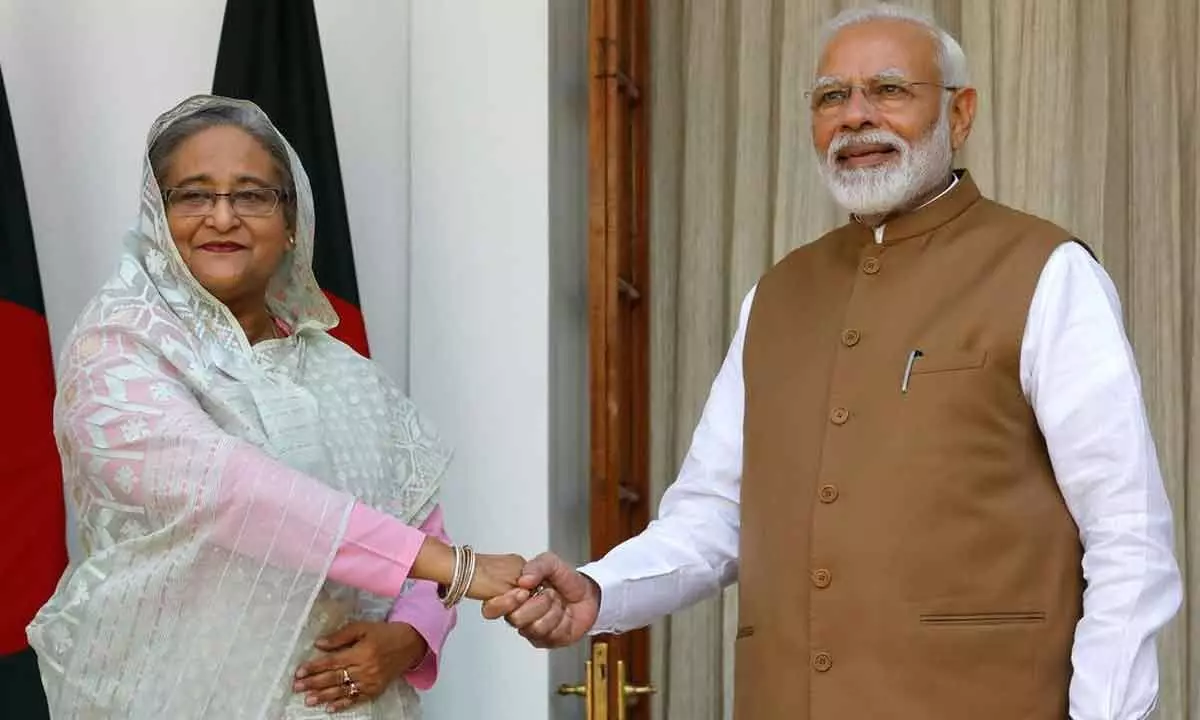Hasina’s return to power augurs well for Indo-Bangla relations
image for illustrative purpose

Prime Minister Sheikh Hasina’s ruling Awami League is coming to power for a fourth consecutive term in Bangladesh. This was a foregone conclusion, as the main opposition party, the Bangladesh Nationalist Party (BNP), led by former prime minister Khaleda Zia, and several other parties, had boycotted the elections. There are and will be wide-spread criticisms and controversies within the country and outside, particularly outside, over the fairness of the election and low voters’ turnout (as low as 40 per cent) but for New Delhi, Hasina’s return to power was crucial for peace and stability in the region and also for bilateral trade and economic relationship. This is more so considering that relations with Hasina have been steady, as opposed to that of Khaleda Zia, whose regime always maintained an anti-India stance. Hasina, the longest serving woman head of the State in the world, is set to tighten her grip on power after Sunday’s general election, held amidst tight security and in the presence of a large number of international observers. Khaleda Zia is under house arrest after being convicted on corruption charges.
The former prime minister, who served the country from 1991 to 1996 and again from 2001 to 2006, has been consistently presenting herself as an “unyielding” leader. As the main opposition, the BNP has been challenging the government’s capacity to organize fair elections while expressing concerns about potential manipulation of ballot boxes. It may be recalled that it had opted to abstain from the 2014 elections citing similar apprehensions. From India’s standpoint, Hasina’s return will address the challenges of violent extremism and radicalization, as Hasina is crucial for peace and stability in the region. New Delhi was always keen on Hasina heading the country as it will address India’s security concerns and counter China’s growing influence in the country. Bangladesh had joined China’s controversial Belt and Road Initiative (BRI) in 2016. China is also building a $ one billion base in the Kutubdia area of Bangladesh for the two submarines it sold to them. China’s growing influence in the country can be gauged from the fact that it has also invested in major infrastructure projects and pledged $38 billion for various projects in Bangladesh.
Both India and the US are concerned with China’s growing influence in Bangladesh. Besides, a BNP win could have empowered Islamists and jeopardised the security of India’s northeastern states. Under Hasina, Bangladesh has successfully managed to strike a balance between global powers, including India, China and Russia. Amid the Ukraine war, Hasina nurtured her country’s historic ties with Russia, while also staunchly supporting both India and China while calling them her friends and having economic ties with both of their sparring neighbours. When the Hasina administration drew flak from some western countries, including the US, in the pre-poll scenario, India stood rock-solid with her neighbour. And now that the Hasina government has returned to power, it’s time India reaps rich dividends. It should also help India build up on this relationship and emerge as a true regional and global leader.

